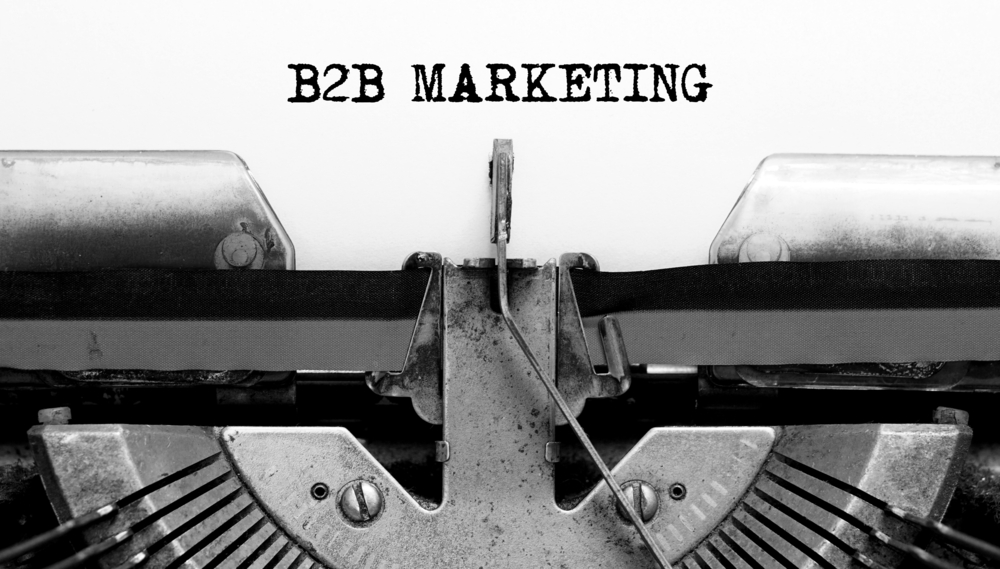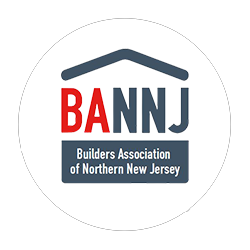
Building a B2B Email List for Effective Construction Material Marketing
Author: GWP Inc.
Date: May 15, 2024
Category: B2B Construction Materials
Have a Question?The Importance of Targeting the Right Audience for Your B2B Email List
In today's digital age, email marketing has become an essential tool for businesses to reach their target audience. This is especially true for B2B companies in the construction material industry. With the rise of online communication and the increasing use of email as a primary form of communication, building a B2B email list has become crucial for effective marketing strategies.
One of the key factors in successful email marketing is targeting the right audience. This is particularly important for B2B companies as they are selling their products or services to other businesses rather than individual consumers. Therefore, having a well-defined and targeted email list is essential for reaching potential clients and generating leads.
The first step in building a B2B email list is to identify your target audience. This involves understanding the needs and preferences of your potential clients. For construction material companies, this could include contractors, architects, engineers, and other professionals involved in the construction industry. By understanding their specific needs and pain points, you can tailor your email marketing campaigns to address these concerns and provide solutions.
Once you have identified your target audience, the next step is to gather their contact information. This can be done through various methods such as networking events, trade shows, and online platforms. It is important to note that the quality of your email list is more important than the quantity. It is better to have a smaller list of highly targeted and engaged contacts rather than a large list of uninterested recipients.
One effective way to gather contact information is through lead magnets. These are incentives that you offer in exchange for a potential client's contact information. This could be in the form of a free e-book, webinar, or industry report. By providing valuable and relevant content, you can attract potential clients and add them to your email list.
Another important aspect of building a B2B email list is to ensure that your contacts have given their consent to receive emails from your company. This is known as permission-based marketing and is crucial for maintaining a positive reputation and avoiding legal issues. You can obtain consent by including an opt-in form on your website or by sending a confirmation email to new subscribers.
Segmentation is also a key factor in building an effective B2B email list. This involves dividing your contacts into different groups based on their interests, preferences, and behavior. By segmenting your email list, you can send targeted and personalized emails that are more likely to resonate with your audience. This can lead to higher open and click-through rates, ultimately resulting in more conversions.
In addition to segmentation, it is important to regularly clean and update your email list. This involves removing inactive or unengaged contacts and updating any changes in contact information. By regularly maintaining your email list, you can ensure that your emails are reaching the right audience and avoid being marked as spam.
In conclusion, building a targeted and engaged B2B email list is crucial for effective marketing in the construction material industry. By understanding your target audience, gathering their contact information, obtaining consent, and implementing segmentation and regular maintenance, you can create a powerful email list that can generate leads and drive sales for your business. Remember, quality over quantity is key, and always strive to provide valuable and relevant content to your subscribers. With a well-built email list, your construction material company can reach new heights in the digital world.
Strategies for Collecting and Maintaining Quality Contacts in Your B2B Email List
In today's digital age, email marketing has become an essential tool for businesses to reach their target audience. This is especially true for the construction material industry, where B2B relationships play a crucial role in driving sales and growth. Building a strong B2B email list is key to effective marketing in this industry, as it allows companies to directly communicate with potential clients and showcase their products and services. In this article, we will discuss some strategies for collecting and maintaining quality contacts in your B2B email list for effective construction material marketing.
The first step in building a B2B email list is to identify your target audience. This includes understanding the specific needs and preferences of your potential clients, as well as their industry and job roles. This information will help you create targeted and personalized email campaigns that are more likely to resonate with your audience. You can gather this information through market research, customer surveys, and analyzing your current client base.
Once you have identified your target audience, the next step is to collect their contact information. One effective way to do this is by offering valuable content in exchange for their email address. This could be in the form of a free e-book, webinar, or industry report. By providing valuable information, you not only attract potential clients but also establish yourself as an expert in the industry. Another way to collect contact information is by attending industry events and networking with potential clients. Make sure to have a sign-up sheet or business cards on hand to gather their information.
It is important to note that collecting contact information is not a one-time task. It is an ongoing process that requires constant effort and attention. This brings us to the next strategy – maintaining the quality of your B2B email list. One way to do this is by regularly cleaning your list. This involves removing inactive or incorrect email addresses to ensure that your emails are reaching the right people. You can also segment your list based on factors such as industry, job role, or location to send more targeted and relevant emails.
Another strategy for maintaining a quality B2B email list is by regularly engaging with your contacts. This can be done through personalized and relevant email campaigns. Make sure to include a call-to-action in your emails, such as requesting feedback or offering a discount, to encourage engagement. You can also use email automation to send personalized emails based on the actions and interests of your contacts. This not only saves time but also increases the chances of conversion.
In addition to email campaigns, social media can also be a powerful tool for maintaining a quality B2B email list. By regularly posting valuable content and engaging with your followers, you can attract potential clients and encourage them to sign up for your email list. You can also use social media to promote your email campaigns and encourage your followers to share them with their network.
Lastly, it is important to regularly track and analyze the performance of your email campaigns. This will help you understand what works and what doesn't, and make necessary adjustments to improve the effectiveness of your B2B email list. You can track metrics such as open rates, click-through rates, and conversion rates to measure the success of your campaigns. This data can also help you identify areas for improvement and make informed decisions for future campaigns.
In conclusion, building and maintaining a quality B2B email list is crucial for effective construction material marketing. By understanding your target audience, regularly collecting and engaging with contacts, and tracking the performance of your campaigns, you can create a strong and effective email list that drives sales and growth for your business. Remember, it is an ongoing process that requires constant effort and attention, but the results are well worth it.
Maximizing the Impact of Your B2B Email List through Personalization and Segmentation
In today's digital age, email marketing has become an essential tool for businesses to reach their target audience. This is especially true for B2B companies in the construction material industry, where building relationships and trust with potential clients is crucial. However, simply having a B2B email list is not enough. To truly maximize its impact, personalization and segmentation are key.Personalization is the process of tailoring your email content to specific individuals or groups based on their interests, preferences, and behaviors. This allows you to create a more personalized and relevant message that resonates with your audience. In the construction material industry, personalization can be as simple as addressing the recipient by their name or as complex as customizing the content based on their previous purchases or interactions with your company.
One way to personalize your B2B email list is by using dynamic content. This allows you to create different versions of your email for different segments of your list. For example, you can send one version to architects and another to contractors, each highlighting the benefits of your construction materials that are most relevant to their specific roles. This not only makes your email more personalized but also increases the chances of conversion as the content is tailored to their needs.
Segmentation, on the other hand, is the process of dividing your email list into smaller groups based on specific criteria. This allows you to send targeted messages to each segment, increasing the relevance and effectiveness of your emails. In the construction material industry, segmentation can be based on factors such as job title, company size, location, or even the type of construction projects they work on.
Segmentation also allows you to send more targeted and timely emails. For example, if you have a new product launch, you can send a targeted email to architects who are more likely to specify materials for new projects, while sending a different email to contractors who are more likely to purchase materials for ongoing projects. This not only increases the chances of conversion but also shows your audience that you understand their needs and are providing them with relevant information.
Another way to maximize the impact of your B2B email list is by using triggered emails. These are automated emails that are sent based on a specific action or behavior of the recipient. For example, if a potential client downloads a product brochure from your website, you can set up a triggered email to follow up with them and provide more information or answer any questions they may have. This not only shows that you are attentive to their needs but also keeps your company top of mind.
In addition to personalization and segmentation, it is also important to regularly clean and update your B2B email list. This means removing inactive or incorrect email addresses and adding new contacts. This ensures that your emails are reaching the right people and that your list is up to date. It also helps maintain a good sender reputation, which is crucial for the success of your email marketing campaigns.
Lastly, don't underestimate the power of A/B testing. This involves sending two versions of the same email to a small portion of your list and analyzing the results to determine which version performs better. This allows you to continuously improve and optimize your email content and strategies for maximum impact.
In conclusion, building a B2B email list is just the first step in effective construction material marketing. To truly maximize its impact, personalization and segmentation are essential. By tailoring your emails to specific individuals or groups and sending targeted and timely messages, you can increase the relevance and effectiveness of your email marketing campaigns. Regularly cleaning and updating your list, as well as A/B testing, are also important factors in ensuring the success of your B2B email marketing efforts. With these strategies in place, you can build strong relationships with potential clients and drive conversions for your construction material business.










